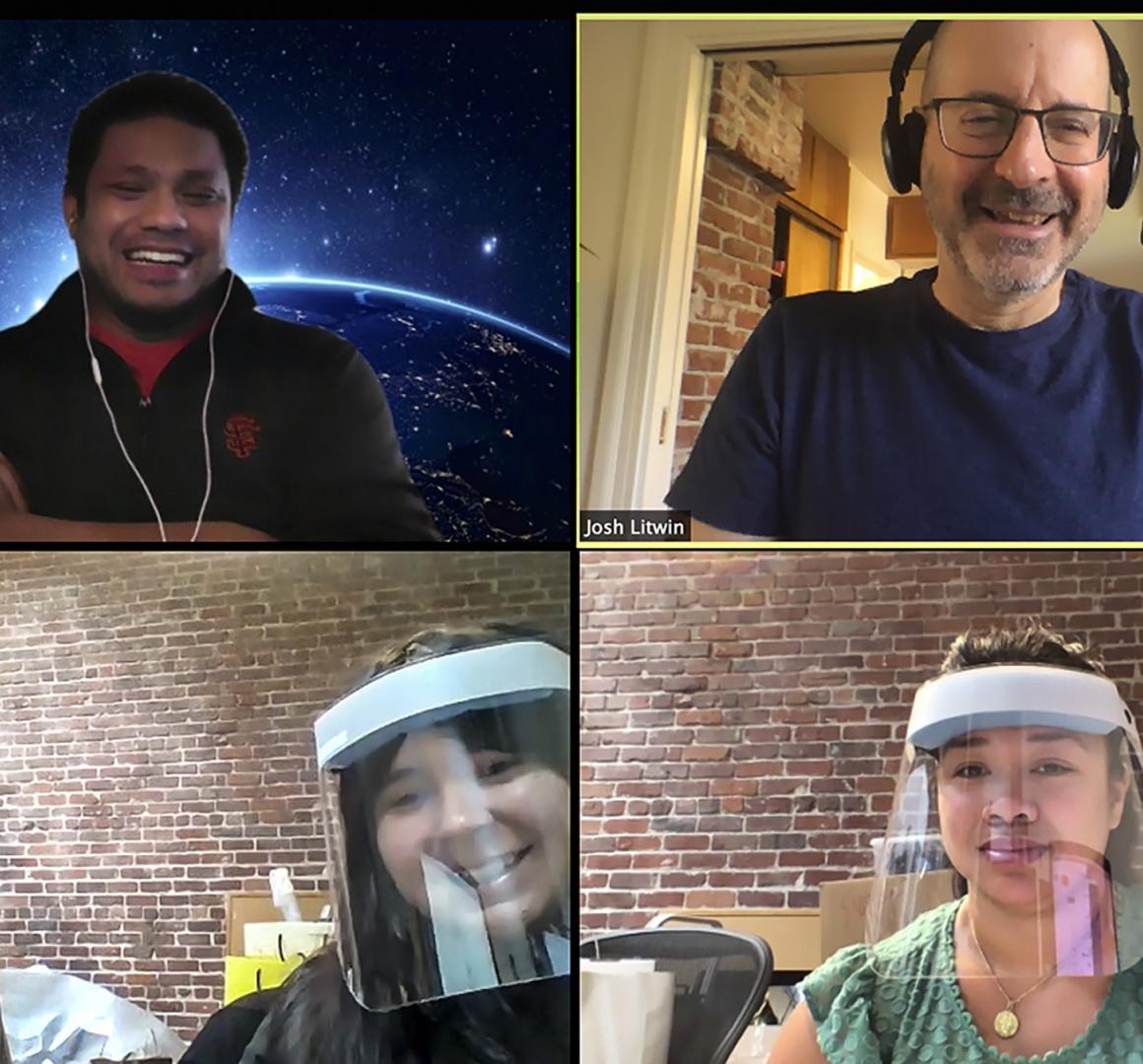Josh Litwin ’87 and Friends Create 21st-Century Counterpart to Rosie the Riveter

When the coronavirus pandemic hit the San Francisco Bay area, three members of the Class of 1987 welded their skills to support those serving on the frontlines. Josh Litwin ’87, Deborah Weil Taylor ’87, and Peter Heinecke ’87 forged Homefront Rosie, an effort to supply healthcare workers with low-cost, reusable, plastic face shields.
Like its namesake inspiration, Homefront Rosie represents people jumping in to new roles in challenging times. Litwin took “only 45 seconds” to come up with the venture’s name; he decided to link the 21st-century effort with World War II’s Rosie the Riveter, the cultural symbol of women who worked in factories and shipyards to produce needed supplies. The woman who inspired the iconic 1943 poster that became know as Rosie worked at the nearby Alameda Naval Station.
Rosie the Riveter heralded a cultural shift, and Litwin said the new “Rosie” may portend another: “I think we’re all going to be using PPE (personal protective equipment) in our lives. Homefront Rosie may have a role in this.”
Homefront Rosie started with Litwin, the founder and owner of Memento Press, a do-it-yourself photo service. He learned one of his longtime business partners was revamping his print machinery to produce face shields and help out in the crisis.
“I jumped in with both feet,” said Litwin, an engineer by training. “For me personally, a big piece of this was keeping my partner’s employees employed,” as well as responding to immediate need.
The print vendor only wanted to make the shields, and needed help with sourcing raw materials, networking and delivering the goods. Litwin tapped Weil Taylor for operations management and Heinecke for legal assistance.
“This has been a scramble,” Litwin admits. “What we do and how we do it continues to evolve.”
By early April, a website was up, nonprofit status established, manufacturing in place, and — with a meaningful donation from Roger Wu ’86 — shields delivered at no charge to area health care providers. Homefront Rosie sent 300 shields to the San Juan Health Department in Puerto Rico, and shipping is available throughout the U.S. To date, Litwin estimates about 20,000 Homefront Rosie shields have found their way to hospitals, elder care facilities and homeless outreach staff.
Production continues, with shields available at cost — $4 each — in bags of 10 or boxes of 100. Homefront Rosie is also looking at making smaller packages of four or five shields as an easier purchase for families, which might be helpful if Litwin is correct that protective equipment becomes a fact of everyday life.
To learn more about the effort, visit the Homefront Rosie website.


